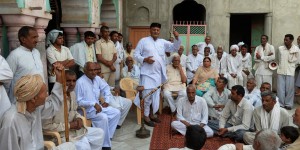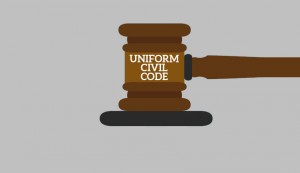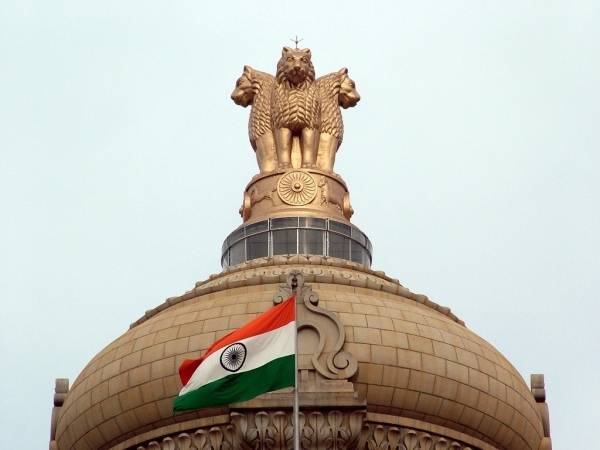This article is written by Richa Singh of Faculty of Law, Aligarh Muslim University. In this article, she has mentioned all the provisions of Directive Principles given under Part IV of the Indian Constitution and tried to compare the Fundamental Rights and DPSP and discussed the conflict between them with the help of some important cases decided by the apex court of the country.
Table of Contents
Directive Principles of State Policy: Meaning
The Directive Principles of State Policy (DPSP) has been taken from the Irish constitution and enumerated in Part IV of the Indian Constitution.
The concept behind the DPSP is to create a ‘Welfare State’. In other words, the motive behind the inclusion of DPSP is not establishing political democracy rather, it’s about establishing social and economic democracy in the state. These are some basic principles or instructions or guidelines for the government while formulating laws/policies of the country and in executing them.
According to Dr B R Ambedkar, these principles are ‘novel features’ of the Constitution. DPSP acts as a guideline for the state and should be taken into consideration while coming up with some new policy or any law. But no one can compel the State to consider and follow all that which is mentioned in DPSP, as DPSP is not justiciable.

Part IV of the Indian Constitution
Part 4 of the Indian Constitution consists of all the DPSP (Directive Principles of State Policy).
It covers the Articles from 36 to 51.
Article 36 of Part IV defines the term “State” as the one, who has to keep in mind all the DPSP before formulating any policy or law for the country. The definition of “State” in the part IV will be the same as that of Part III, unless the context otherwise requires a change in it. In Article 37 the nature of DPSP has been defined. DPSPs are non-justiciable.
Article 38 to 51 contains all the different DPSP’s.
History
- The source of the concept of DPSP is the Spanish Constitution from which it came in the Irish Constitution. The makers of the Indian Constitution were very much influenced by the Irish nationalist movement and borrowed this concept of DPSP from the Irish Constitution in 1937.
- The Government of India Act also had some instructions related to this concept which became an important source of DPSP at that time.
- The Directive Principles of the Constitution of India have been greatly influenced by the Directive Principles of Social Policy.
- The Indians who were fighting for the independence of India from the British rule were greatly influenced by the movements and independence struggles of Ireland at that time, to free themselves from the British rule and move towards the development of their constitution.
- DPSP become an inspiration for independent India’s government to tackle social, economic and various other challenges across a diverse nation like India.
- DPSP and fundamental rights have a common origin. The Nehru Report of 1928 contained the Swaraj Constitution of India which contained some of the fundamental rights and some other rights such as the right to education which were not enforceable at that time.
- Sapru Report of 1945 divided fundamental rights into justifiable and non-justifiable rights.
- Justifiable rights, the one which was enforceable in a court of law and included in Part III of the Constitution. On the other hand, Non-justifiable rights were listed as directive principles, which are just there to guide the state to work on the lines for making India a welfare state. They were included in part IV of the Constitution of India as Directive Principles of State Policy.
- The Constituent Assembly was given the task of making a constitution for India. The assembly composed of elected representatives and Dr. Rajendra Prasad was elected as its President.
- Both the Fundamental Rights and the DPSP were enlisted in all the drafts of the constitution (I, II and III) prepared by the Drafting Committee whose chairman was Dr. B.R. Ambedkar.
Sources
- The DPSP of the Indian Constitution was inspired by the Irish Constitution which took these details from Spain.
- Some Instruments of Instructions, which also became the immediate source of DPSP, have been taken from the Government of India Act, 1935.
- Another source was the Sapru Report, 1945 which gave us both Fundamental Rights (justiciable) and DPSP(s) (non-justiciable).

Reflection of Preamble
The Preamble is a brief introduction to the constitution and it contains all the objectives which were there in the mind of the drafters of the Indian Constitution.
According to some scholars, DPSP is ‘the kernel of the Indian Constitution’.
The Directive Principles of the State Policy (DPSP) are the guidelines for the state which it must consider while formulating new laws and policies and it lay down all the objectives which the Constitution seeks to achieve.
The expression “Justice – Social, economic and political” that is mentioned in the preamble is the ultimate aim that has to be achieved through the formulation of the DPSP.
DPSP are enlisted to attain this ultimate aim as mentioned in the preamble i.e. Justice, Liberty, Equality and fraternity are also known as the four pillars of the Indian Constitution. It also enlists the idea of the welfare state which was absent under the colonial rule.
Features
- DPSP are not enforceable in a court of law.
- They were made non-justifiable considering that the State may not have enough resources to implement all of them or it may even come up with some better and progressive laws.
- It consists of all the ideals which the State should follow and keep in mind while formulating policies and enacting laws for the country.
- The DPSPs are like a collection of instructions and directions, which were issued under the Government of India Act, 1935, to the Governors of the colonies of India.
- It constitutes a very comprehensive economic, social and political guidelines or principles and tips for a modern democratic State that aimed towards inculcating the ideals of justice, liberty, equality and fraternity as given in the preamble. The Preamble consists of all the objectives that needs to be achieved through the Constitution.
- Adding DPSP was all about creating a “welfare state” which works for the individuals of the country which was absent during the colonial era.
List of Directive Principles of State Policy
| Article | What it says |
| 36 | Defines the “state”. |
| 37 | Part IV of the Indian Constitution shall not be enforceable in any court of law. |
| 38 | Social, Political and Economic Justice. |
| 39 | Principles of Policy. |
| 39A | Free Legal aid. |
| 40 | Organization of Panchayats. |
| 41 | Welfare Government. |
| 42 | Securing just and humane work and maternity relief. |
| 43 | Fair wages and a decent standard of life. |
| 43-A | Workers’ participation in management. |
| 43-B | Promotion of Cooperatives. |
| 44 | Uniform Civil Code. |
| 45 | Infant and Child Care. |
| 46 | Protection of SCs, STs and other weaker sections from exploitation. |
| 47 | Nutrition, Standard of living and public health. |
| 48 | Scientific agriculture and animal husbandry. |
| 48-A | Environment and Wildlife Protection. |
| 49 | Protection of monuments and places and objects which have national importance. |
| 50 | Judiciary should be separate from the Executive. |
| 51 | The state shall promote international peace and security. |
Article 36
- Article 36 contains the definition of State.
- Unless the context otherwise requires, the definition of “the State” is the same as it is given in Part III which covers Fundamental Rights.
- The definition given in Article 12 shall apply in this part as well which says that the State includes:
- The Government of India
- The Parliament of India
- The Government of each of the States
- The Legislature of each of the States
- All the authorities whether local or any other which are the part of Indian territory or under the control of the government.
Article 37
- Article 37 mentions the two important characteristics of DPSP, and they are:
- It is not enforceable in any court of Law.
- And they are very basic and essential for the governance of the country.
The provisions mentioned in this part shall not be enforceable in any court and the principles laid down in this part are fundamental for the governance of the country. The State must make laws according to it because the ultimate aim of the State is the welfare of its citizens.

Socialist principles
- These principles follow the ideology of “Socialism” and lay down the framework of India.
- Its ultimate aim is to provide social and economic justice to all its citizens so that the state can fulfil the criteria required for a welfare state.
- The articles in DPSP which follows the socialist principles are – Article 38, Article 39, Article 39 A, Article 41, Article 42, Article 43, Article 43 A and Article 47.
Article 38
- Article 38 talks about Social, Political and Economic Justice.
- It directs that the State should secure a social order which provides social, political and economic justice to all its citizens.
- Article 38(2) says that state shall reduce the inequalities faced by the people on the grounds like income, status, facilities, opportunities, etc.
Article 39
- Article 39 mentions all the Principles of policy which must be followed by the State.
The State shall make its policies towards securing the following objectives—
- All the men, women and citizens should have the right to an adequate means of livelihood
- The ownership and control of the people over any material resources under the community should be distributed as it is for the common good of the public;
- The functioning of the economic system should be such that the concentration of wealth and the means of production don’t result in a loss common to all or which causes detriment to the citizens;
- There shall be no gender discrimination, both men and women should get equal pay for equal work.
- The health and strength possessed by any worker, men and women, and the tender age of children should not be abused and the citizens should not be forced to enter and indulge into any occupation or profession which is not suitable for their age or strength, not even out of any financial necessity or economic backwardness
- Children must be given enough opportunities and facilities so that they develop in a healthy manner and in such conditions where their freedom and dignity, including the fact that their childhood and youth remain protected, against any form of exploitation and against any sort of moral and material abandonment.

Article 39A
- Article 39A talks about Free Legal aid.
- It says that the State shall promote justice with the aim of administering Justice on the basis of equal opportunity, and shall provide free legal aid through any suitable legislation or schemes which State may think fit ,or, in any other way, so that it could ensure that the opportunities for securing justice are not denied to any citizen because of economic backwardness or any other kind of disabilities.
Article 41
- Article 41 talks about Welfare Government.
- It says that state shall make some effective provisions for securing the right to work, etc. and in cases of unemployment, old age, disablement or any other cases acting in its economic capacity & development it shall provide public assistance. This article is employed as a tenet for numerous social sector schemes like social assistance program, right to food security, old-age pension scheme, MGNREGA, etc.
Article 42
- Article 42 talks about Securing just and humane work and maternity relief.
- It says that state shall create some provisions so that the citizens get easy, just and humane conditions for working. It shall also provide maternity relief for the women.
Article 43
- Article 43 talks about Fair wages and a decent standard of life.
- It says that the state can endeavor to secure by appropriate legislation or economic organization to all the workers employed in agricultural, industrial or otherwise, work, a living wage, conditions of work, ensuring a decent standard of life and enjoyment of leisure and social-cultural opportunities and promote cottage industries on an individual or cooperative basis in rural and remote areas of the country.
Article 47
- Article 47 talks about Nutrition, Standard of living and public health.
- It says that the State shall look into the matter of raising the level of nutrition and the standard of living of its people and it is the duty of the State to keep a check on the improvement of public health. The State shall also endeavor to prohibit the consumption of intoxicating drinks and drugs which are injurious for health, except for medicinal purposes. There are many social development programmes such as National Health Mission, Mid Day Meal Scheme, etc. which target the marginalized sections of the society i.e. women, children, weaker sections etc. are inspired by this DPSP.

Gandhian Principles
- These principles reflect the programme of reconstruction ideology propagated by Gandhi throughout the national movement. In order to fulfil his dreams, some of his concepts have been included in the form of DPSP.
- They direct the State through these articles – Article 40, Article 43, Article 43 B, Article 46, Article 47 and Article 48.
Article 40
- Article 40 deals with the Organization of Panchayats.
- It says that the state shall organize Panchayat system and should grant them such powers which would be necessary for the functioning as units of the self-government system.
- The 73rd and 74th amendments of the constitution which are related to Panchayati Raj and Municipal Corporations respectively, later ended up as the constitutionally backed framework for the principle mentioned in Part IV.
Article 43
- Article 43 talks about Fair wages and a decent standard of life.
- It says that the state can endeavor to secure, by appropriate legislation or economic organization, to all the workers employed in agricultural, industrial or otherwise, work, a living wage, conditions of work, a decent standard of life and enjoyment of leisure & social-cultural opportunities and promote cottage industries on an individual or cooperative basis in rural and remote areas of the country.
Article 43B
- Article 43B deals with the promotion of cooperatives.
- It was inserted by the 97th amendment act in 2011. It says that state shall endeavor to promote the management of the co-operative societies to help the people who are engaged in the same.
Article 46
- Article 46 deals with the Protection of SCs, STs, weaker sections from exploitation.
- The State shall promote with special care including the educational and economic interests of the weaker sections of the society i.e. the SCs and the STs and shall make provisions to protect them from all forms of exploitation which includes social injustice.
Article 47
- Article 47 talks about Nutrition, Standard of living and public health.
- It says that the State shall look into the matter of raising the level of nutrition and the standard of living of its people and it is the duty of the State to keep a check on the improvement of public health. The State shall endeavor to prohibit the consumption of intoxicating drinks and drugs which are injurious to health except for medicinal purposes.
- There are many social development programmes such as National Health Mission, Mid Day Meal Scheme, etc. which target the marginalized sections of the society i.e women, children, weaker sections etc. are inspired by this DPSP.
Article 48
- Article 48 talks about Scientific agriculture and animal husbandry.
- It says that the State shall endeavor to organize agriculture and animal husbandry using modern methods and scientific techniques which make people more advanced and helps in earning their livelihood easily and State shall take some progressive steps for preserving and improving the existing breeds and prohibiting the slaughter of cows and other cattle.

Liberal-intellectual Principles
- These principles follow the ‘Liberalism’ ideology.
- The articles which follow this approach in DPSP are – Article 44, Article 45, Article 48, Article 48 A, Article 49, Article 50 and Article 51.
Article 44
- Article 44 talks about the Uniform Civil Code.
- There should be a provision for the citizens to secure a Uniform Civil Code throughout the territory of India in order to simplify things and reduce ambiguity in the laws which makes it more complex than it actually is.

Article 45
- Article 45 contains the Provision for free and compulsory education for the children in the country.
- The State shall make laws to provide free and compulsory education for the children until they are 14 years old within a period of 10 years from the date of commencement of this provision in the Constitution.
- This provision was incorporated by the virtue of the 86th Amendment, 2002 in the Constitution of India.

Article 48
- Article 48 talks about Organisation of agriculture and animal husbandry.
- The State shall endeavour to organise agriculture and animal husbandry using modern and scientific technology which is prevalent in the present times and also take steps for preserving and improving the existing breeds and prohibiting the slaughter of cows and other cattle in the country for the development of agricultural related practices.

Article 48A
- Article 48A talks about the Environment and Wildlife Protection.
- The State shall endeavour to protect and improve the environment and surroundings. And to safeguard the forests and wildlife of the country to make the environment sustainable.
Article 49
- Article 49 talks about Protection of monuments and places and objects of national importance.
- It shall be the duty of the State to protect every monument or place or any object of historic or artistic interest which has some national importance, from any form of disfigurement, destruction, etc.
Article 50
- Article 50 talks about Separation of Judiciary from the Executive.
- There should be a line between the judiciary and the executive body of the Government in the public services of the State as it makes it easier if both do not interfere in each other’s work and function independently.
Article 51
- Article 51 talks about Promotion of international peace and security.
- The State shall endeavour to —
- Promote international peace and security;
- maintain friendly and honourable relations between nations;
- foster respect for international law and treaty obligations in the dealings of one person with another for maintaining harmony between the nations and
- encourage settlement of international disputes by the method of arbitration.
42nd Amendment
Four Directive Principles which were added by the 42nd amendment are as follows:
- Article 39 – To secure opportunities for healthy development of children.
- Article 39A – It says that the State shall promote justice with the aim of administering it on the basis of equal opportunity, and shall provide free legal aid through any suitable legislation or the schemes which State may think fit or in any other way so that State can ensure that opportunities for securing justice are not denied to any citizen because of any economic or other disabilities.
- Article 43A – The State shall take steps, by suitable legislation or in any other way, to secure the participation of workers in the management of undertakings, establishments or other organisations.
- Article 48A – The State shall endeavour to protect and improve the environment and surroundings and to safeguard the forests and wildlife of the country to make its environment liveable.

44th Amendment
- The 44th Amendment Act of 1978 added Article 38(2) in the DPSP.
- Article 38(2) says that the state shall work to minimize the inequalities in income, and endeavour to eliminate inequalities in status, opportunities etc. not only amongst individuals but also amongst all the groups of people residing in different areas or engaged in different fields.

86th Amendment
- The 86th Amendment changed the subject of Article 45 in the DPSP and brought it within the ambit of the fundamental rights mentioned in Part III as Article 21-A has been made for the children between the age group of 6-14 years of age. The same article was previously a directive principle which says that the State should take care of the children who are below 6 years of age.
97th Amendment
- The 97th Amendment act of 2011 inserted Article 43-B in the list of DPSP. It says that the State shall endeavour to promote voluntary formation, autonomous functioning, democratic control and professional management of the co-operative societies.
Enforceability of DPSP
DPSP were not made enforceable by the Constituent Assembly which was formed to draft the Indian Constitution. But the non-enforceability of the Principles does not mean that they are of no importance.
There are some arguments which are in favor of its enforceability and some are against the making of DPSP enforceable. Those who favor the enforcement of the Principles argue that enforceability of DPSPs will keep a check on the Government and would unite India. For instance, Article 44 of the Indian Constitution talks about the Uniform Civil Code which aims for uniform provisions of civil law for all the citizens of the country irrespective of their caste, creed, religion or beliefs.
People who are against the enforcement of the DPSPs are of the view that these principles need not be separately enforced as there are already many laws which indirectly implements the provisions mentioned in DPSP. For instance, Article 40 of the Constitution which deals with Panchayati Raj system was introduced through a constitutional amendment, and it is very evident that there are numerous panchayats exist in the country today.
Another argument against DPSP is that it imposes morals and values on the citizens of the country. It should not be clubbed with the law as it is really important to grasp that law and morals area unit various things. If we impose one on the opposite that will generally impede the expansion and development of the society.
Importance of DPSP
DPSP covers the Articles 36-51 in Part IV of the constitution.
It mentions protection of women of the country, environmental conservation, rural growth and development, decentralisation of power, uniform civil code, etc. which are considered some of the essentials in making laws for a “welfare state”.
Although non-justiciable, they provide a set of guidelines for the Government for its functioning in the country.
Significance of DPSP
- Directive Principles are non-justiciable but these are backed by vox populi (voice of the people), which is the real sanction behind every law in reality.
- DPSP gives the philosophical foundations of a welfare system. These principles makes it a responsibility of the State to secure it through welfare legislation.
- Their nature is more of moral ideals. They constitute a moral code for the State but this does not reduce their value as moral principles are very important and the absence of it may hamper the growth of a society. A state is run by its people and the Government is always formed and managed by them, so it’s really important to have a set of standards for making laws in the country.
- Directive Principles act as a guide for the government which helps them in making policies and laws for the purpose of securing justice and welfare in the State.
- DPSP are like a source of continuity in the Governance of the country because in a democratic system, the Governments change after regular elections and every new government makes different policies and laws for the country. The presence of such guidelines is really important because it ensures that every Government will follow the set of principles in the form of DPSP while formulating its laws.
- Directive Principles can be called as the positive directions for the State which helps in securing social and economical dimensions of democracy. DPSP are supplementary to Fundamental Rights which offers political rights and other freedoms. They both are nothing without each other as one provides social and economic democracy and the other, political rights.
- Directive Principles of State Policy make it possible for people to measure the worth of a government and its working. A Government which doesn’t consider these principles can be rejected on this ground by the people in favour of a government which gives due importance to the task of securing these Directive Principles in the state.
- The Directive Principles constitute a manifesto of a Nation. These reflect the ideas and views which were there in the mind of the drafters while drafting the constitution. These reflected the philosophy behind the making of the Constitution and hence provide useful information to the courts in interpreting the existing provisions in the Constitution and in coming up with better laws and policies.
- The Directive Principles do not seem to be very rigid in their meanings and this helps the State in interpreting and applying these principles in accordance with the situation prevailing at a given time.
Thus, the inclusion of Part IV which contains the Directive Principles of State Policy proved to be very useful for the country. The Directive Principles provide good foundations for welfare state. The securing of Directive Principles helped in completing the requirements of a democratic system. It supplemented the Fundamental Rights of the people and built a State characterized by these four pillars – Justice, Liberty, Equality, and Fraternity.
Implementation of Directive Principles of State Policy
There are some acts and policies from 1950 onwards which had been implemented to give effect to these Directive Principles. They are as follows:
- The Minimum Wages Act (1948)
- Child Labour Prohibition and Regulation Act (1986)
- The Maternity Benefit Act (1961)
- Equal Remuneration Act (1976)
- Handloom Board, Handicrafts Board, Coir Board, Silk Board, etc. have been set up for the development of cottage industries in the country.
- Integrated Rural Development Programme (1978)
- Jawahar Rozgar Yojana (1989)
- Swarnajayanti Gram Swarozgar Yojana (1999)
- Sampoorna Gram Rozgar Yojana (2001)
- Mahatma Gandhi National Rural Employment Guarantee Programmes (2006)
- The National Forest Policy (1988)
- Article 21-A was inserted by the 86th amendment, making free education for children below the age of 14 compulsory.
- Prevention of Atrocities Act safeguarding the interests of SCs and STs.
- Several Land Reform Acts.

DPSP and Fundamental rights
Fundamental Rights are described as the basic rights guaranteed to every citizen of the country under the constitution. They are present in Part III of the Constitution which ensures some rights to all its citizens so that they can live their lives peacefully. They help in checking the activities of the Government so that it cannot curtail any of the basic rights granted by the Constitution in the form of Fundamental rights.
Fundamental Rights apply to all the citizens without any form of discrimination on the basis of race, caste, creed, sex, place of birth, etc. Violation of the fundamental rights may lead to punishment and can initiate proceedings against the government if it tries to curtail them.
The Indian Constitution recognizes 7 fundamental rights, they are as follows:
- Right to Equality
- Right to freedom
- Right to freedom of religion
- Right against exploitation
- Cultural and Educational Rights
- Right to constitutional remedies
- Right to privacy (recently added)
Directive Principles of State Policy are some important guidelines given to the government so that it can work accordingly and refer to them while formulating the laws and policies, and to build a just society.
These principles are mentioned in Part IV from Article 36 to 51 of the Constitution.
Directive Principles are non-justiciable. However, these are recognized as an important roleplayer in governing the State. These principles aim at creating such an environment, which can help the citizens to live a good life where peace and harmony prevails.
The directive principles conjointly gauge the performance of the state, in order to achieve the objectives stated in the preamble of the Indian Constitution.
Comparison between DPSP and Fundamental rights
| BASIS FOR COMPARISON | FUNDAMENTAL RIGHTS | DIRECTIVE PRINCIPLES |
| Meaning | The essential or basic rights granted to all the citizens of the country. | The guidelines which are considered while formulating policies and laws. |
| Defined | In Part III of the Constitution. | In Part IV of the Constitution. |
| Nature | Negative | Positive |
| Enforceability | Legally enforceable. | Not enforceable. |
| Democracy | Political democracy. | Social and economic democracy. |
| Legislation | Not required. | Required. |
| Promotes | Individual welfare | Public welfare |
The conflict between DPSP and fundamental rights
Fundamental Rights and the DPSP are supplementary to each other and are essential to meet the social and economic dimensions of a democratic government.
The conflict between Fundamental Rights and DPSP often arises as sometimes it has been seen, by various legislations, that DPSP have wider scope than the Fundamental Rights. The Fundamental Rights are the rights which are enforceable by the Courts and any law that is in contravention to the provisions mentioned in Part III are ultra vires.
On the other hand, the DPSP are not enforceable in any Court of Law and nothing can be declared as void merely because it is against the provisions given under the DPSP.
In the case of State of Madras v. Champakam, the Supreme Court held the Fundamental rights are superior to the DPSP saying that the Fundamental Rights under Part III prevails over DPSP in case of any conflict between them.
In the landmark judgment given by the Supreme Court in the Golak Nath case, it was held that the provisions mentioned under Part III as Fundamental Rights cannot be undermined just to implement the provisions given under Part IV which enlists some important guidelines for the State in the form of the DPSP.
The Constitution was amended in the year 1971 and through this amendment, Article 31C was incorporated in the Constitution. It confers wider importance on the DPSP.
In the Minerva Mills case, the Supreme Court restricted this wide scope which was conferred on the DPSP under Article 31C by making the following changes:
- It restored Article 31C to its pre-1976 position. A law would be protected by Article 31C only in the case if it has been made to implement the Article 39 (b) and Article39 (c) of the DPSP and not any of the other directive included in Part IV.
- There is a fine balance in the Constitution between the DPSP and the Fundamental Rights, which should be adhered by the Courts without placing any of them as superior.
Criticism of Directive Principles of State Policy
- Some of its critics hold that these principles don’t carry any importance as their violation can’t be challenged in the courts.
- The Directive Principles are a mere declaration of the instructions which are to be observed and secured by the State at will. but the Constitution neither makes them justiciable nor it mentions any limit to what extent it can be secured.
- These are neither consistently explicit nor properly classified. These appear to be a collection of instructions which are only based on morals and a State can’t rely merely on morals for its working.
- Several Directives lack clarity and they have been repeated at different places.
- The Directive to push international peace and friendly relations among all the nations is just a declaration but the real issue is the securing part of it for which nothing has been given.
- Part IV includes some directives which are not complete in actual observation. The ideal is to introduce prohibition but this ideal cannot be really and effectively realised. The states which introduced prohibition had to scrap it later on.
- Most of the Directive Principles are based on old and foreign philosophy which have lost its relevance now.
- Many critics hold that the Preamble should also enlists all these goals which are given under DPSP and their description in Part IV has made things more complicated and complex than it was before.
- Directive principles just create an impression about the usage of the legitimate power by the State and the motive is to gain support through promise-making and not through inaction .
Case study on Directive Principles of State Policy
The question that arises is whether Fundamental Rights precedes DPSPs or latter takes a higher position than the former, it has been a subject of argument for years.
There are some important judicial pronouncements which tried to give an answer to this question, they are as follows:
Kerala Education Bill [1]
The court said that if a conflict arises between Fundamental Right and DPSPs, the harmony between the two should not be disturbed, but if, even after applying the doctrines of interpretation the conflict doesn’t resolves then the former should be upheld and given more importance over the other i.e. DPSP.
Madras vs Champakan [2]
If any law is in contravention to the provisions mentioned under Part III of the Indian Constitution, it would be held void but this is not applicable in case of DPSPs. This shows that Fundamental rights are on a higher pedestal than DPSPs as far as this case is concerned.
Venkataraman v. State of Madras [3]
The Court gave more importance to the Fundamental rights over DPSPs.
I. C. Golaknath & Ors vs State Of Punjab & Anr. [4]
The Court held that the Parliament cannot curtail the Fundamental rights in making any law or policy for the country. It also mentioned that if a law has been made to give effect to Article 39 (b) and Article 39 (c) of Part IV of the Constitution and in doing so if Article 14, Article 19 or Article 31 gets violated, then it cannot be declared as void merely on the ground of such contravention.
Keshavnanda Bharati vs the State of Kerala [5]
The Apex Court placed DPSPs on a higher position than Fundamental Rights.
After that, in the case of Minerva Mills vs Union of India [6], the Court while deciding the case held that the harmony between the two should be maintained because neither of the two has any precedence over each other. Both are complementary to each other and they should be balanced anyhow for the proper functioning of the State.
Unnikrishnan vs State of Andhra Pradesh [7]
The Court was of the view that Fundamental Rights and Directive Principles are not exclusive but complementary to each other. The Court said that the Fundamental Rights are the ways through which the goals given in Part IV can be achieved.
Conclusion
The significance of DPSPs cannot be looked down upon just because it is not enforceable in any court of law. These principles were added to facilitate the governance and smooth functioning of the country. It was added to meet the main objectives and the ultimate goal of a country i.e to work for the welfare of its citizens. There are some important Acts in the above-mentioned information, so we can’t say that DPSPs are not implemented and have no importance at all.ube
It is like a structure given for the government and it should work and formulate new laws revolving around that structure only so that the welfare of the people be ensured. Every policy and law formulated by the state has to meet the standards which are mentioned in Part IV of the Constitution.
Thus, even after being non-justiciable they are implemented in some important Acts and they hold equal relevance and importance as Fundamental rights mentioned in Part III of the Constitution of India.
To know more about Directive Principles of State Policy under Constitution, please Click Here.
References
- 1959 1 SCR 995
- 1951 SCR 525
- 1966 SCR (2) 229
- 1967 AIR 1643
- 1973
- AIR 1980 SC 1789
- 1993 AIR 2178
Students of Lawsikho courses regularly produce writing assignments and work on practical exercises as a part of their coursework and develop themselves in real-life practical skills.
LawSikho has created a telegram group for exchanging legal knowledge, referrals, and various opportunities. You can click on this link and join:
Follow us on Instagram and subscribe to our YouTube channel for more amazing legal content.
 Serato DJ Crack 2025Serato DJ PRO Crack
Serato DJ Crack 2025Serato DJ PRO Crack











 Allow notifications
Allow notifications


